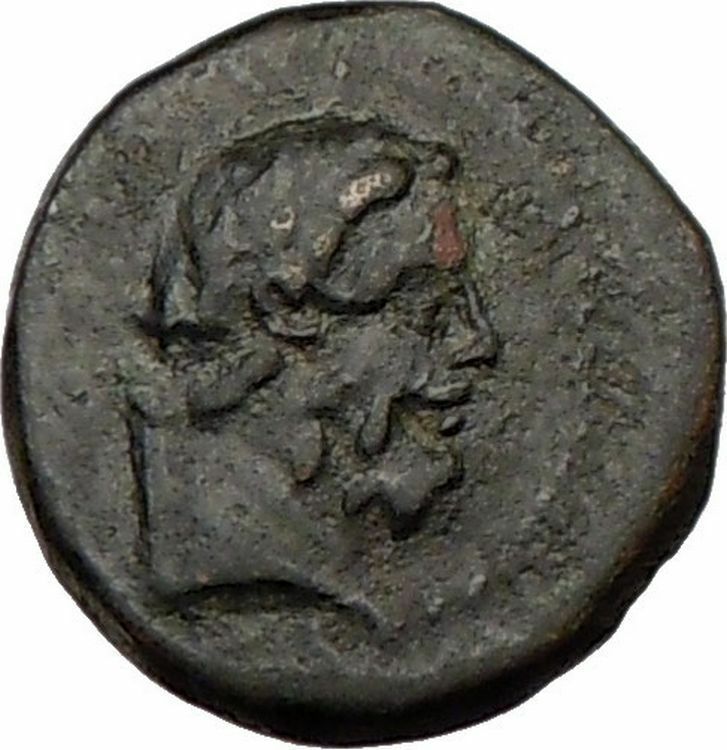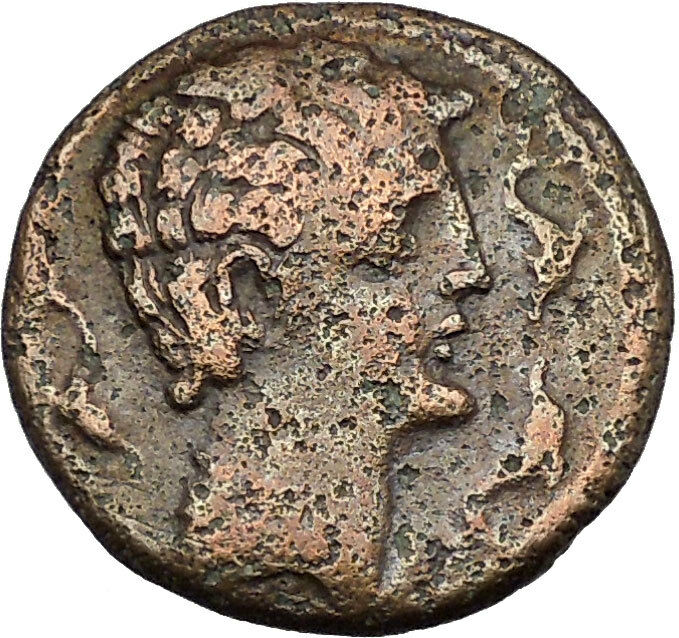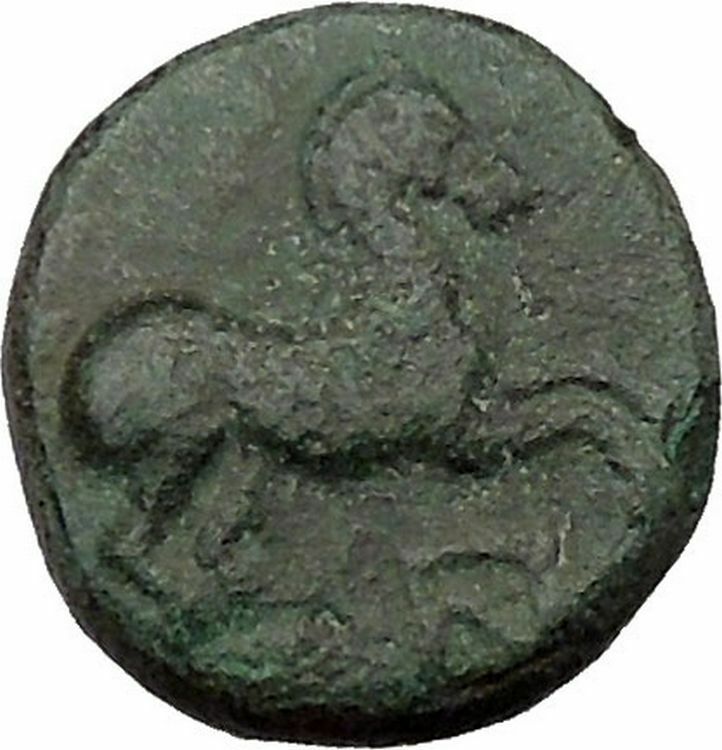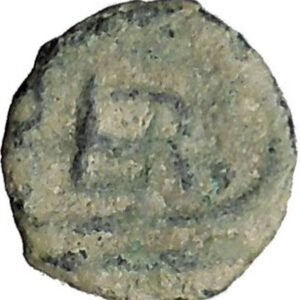|
Greek Coin of Bithynian Kingdom
Prusias II Kynegos – King: 182-149 B.C.
Bronze 29mm (11.53 grams) Struck 182-149 B.C.
Reference: RG pg. 226, 28; BMC Pontus -; SNG Copenhagen 642; SNG von Aulock 6884 var. (no monogram)
Head of Athena left, wearing crested Corinthian helmet.
BASILEWS PROUSIOU, Nike walking right, carrying trophy over left shoulder; monogram to inner right.
Prusias II inherited his father’s name but not his character or abilities. His cringing subservience to the Romans earned him the hatred of his subjects, and few mourned his passing when he was murdered in the temple of Zeus at Nicomedia.
The Kingdom of Bithynia was founded in the early years of the 3rd century B.C. by Zipoetes, a chieftain of the Bithyni. This tribe had, in early times, migrated from Thrace to north-western Asia Minor where they eventually came under Persian suzerainty. Zipoetes, who issued no coinage was succeeded by his son Nikomedes who extended his kingdom with the help of the Gauls. The famous city of Nicomedia was founded by this king about 265 B.C.
You are bidding on the exact item pictured, provided with a Certificate of Authenticity and Lifetime Guarantee of Authenticity.
Prusias II Cynegus (“the Hunter”, lived c. 220 BC – 149 BC, reigned c. 182 BC – 149 BC) was the Greek king of Bithynia. He was the son and successor of Prusias I and Apama III.
Prusias was born to Prusias I and Apama III in 220 BC. His father died in 189 BC, at which point became the king of Bithynia. Prusias joined with the king of Pergamon, Eumenes II in a war against King Pharnaces I of Pontus (181-179 BC). He later invaded the territories of Pergamon (156-154 BC), only to be defeated, and the Pergamenes insisted on heavy reparations, which included 500 talents and “twenty decked ships”. Prusias married his maternal cousin Apame IV, a sister of Perseus of Macedon and a princess from the Antigonid dynasty, by whom he had a son called Nicomedes II and a daughter, also called Apama, who married Dyegilos, son of Cotys IV, King of Thrace, and wife Semestra. He sent his son Nicomedes II to Rome to ask their help in reducing the amount of these reparations, but Nicomedes revolted and became king.
Prusias was praised by the Aetolians on account of his behavior and benefactions towards them.
Towards the end of his life, Prusias II had children by a later wife, and wanted to make them his heirs in place of Nicomedes, son of his earlier wife. Prusias even tried to arrange his eldest son Nicomedes murdered. Nicomedes however revolted against his father. Prusias had to renounce the kingship in favor of his son and ended up being murdered himself instead in 149 BC.
|










